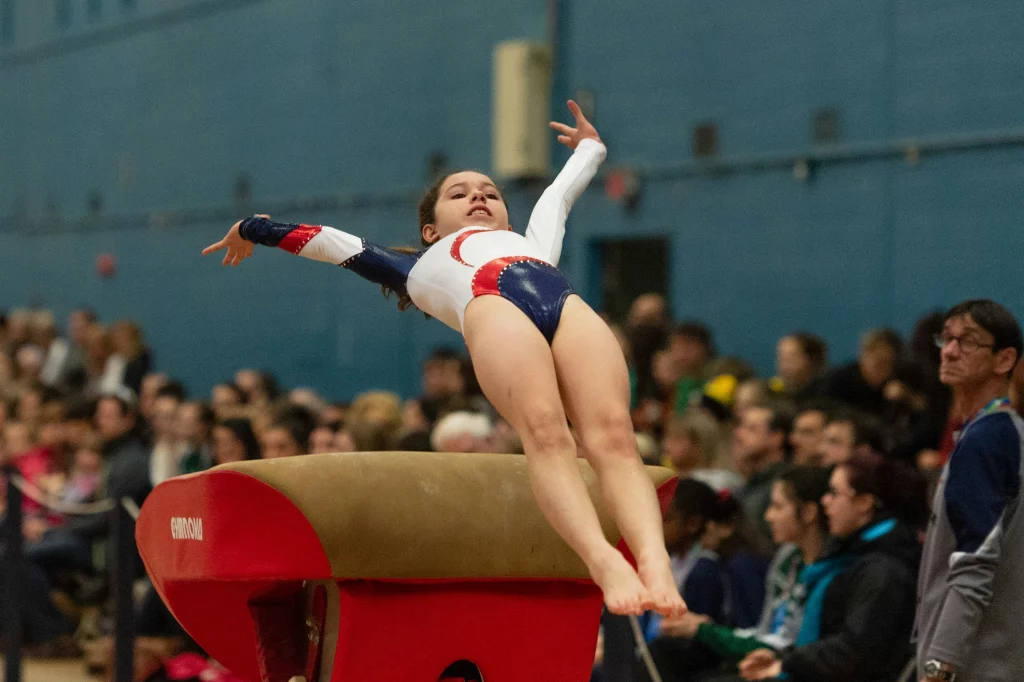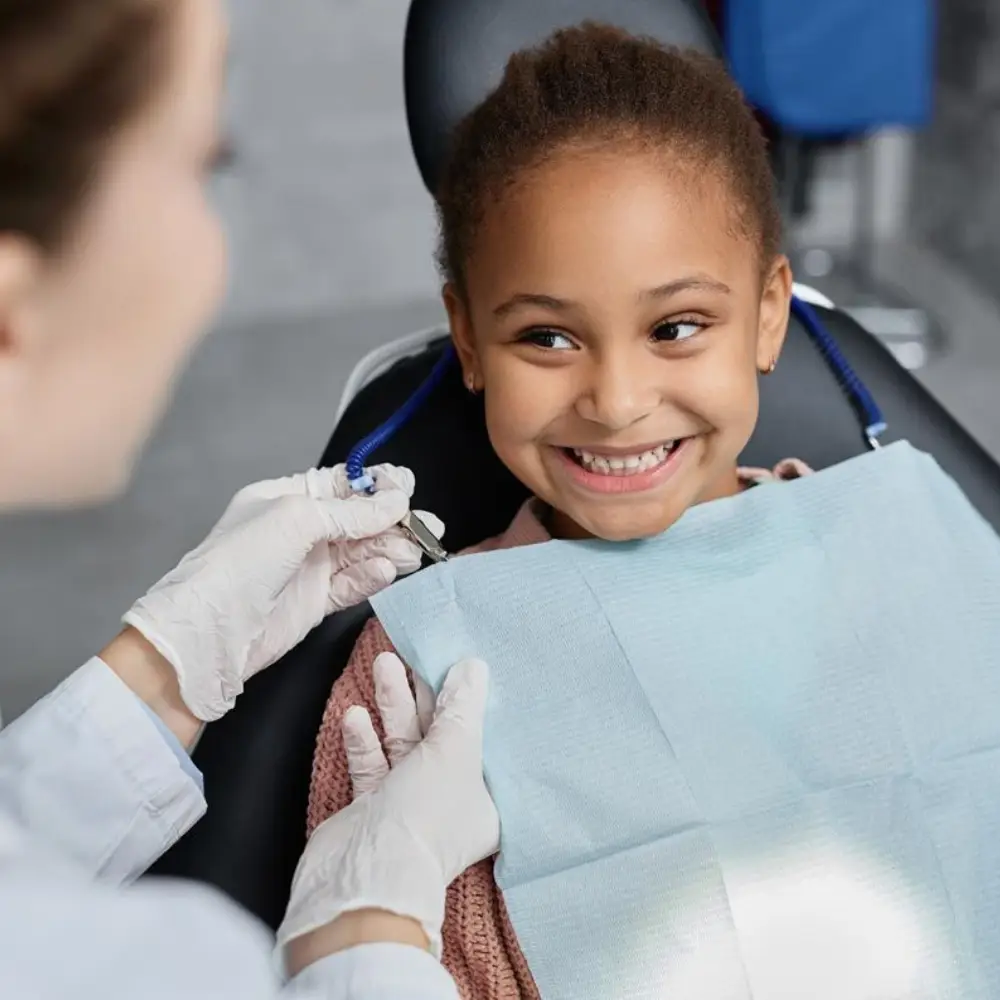Dental implants are changing the face of recovery among athletes in cases of tooth loss to ensure that they are able to remain strong and confident and at the top of their game. In sports, it is all about the movements, be it sprinting down field, landing a jump, or making a mighty swing. Conventional solutions such as dentures can dislodge or move when it comes to vigorous activity, and bridges can cause added pressure to surrounding teeth, which can be problematic in the long run. However, dental implants are made to act in the same way as natural teeth, providing unsurpassed stability, durability, and comfort.
This implies that athletes will not feel distracted or restricted in any way, they can enjoy their game to the fullest because they feel secure in the strength of a well-built, dependable smile. In addition to performance, implants also contribute to long-term oral health so that athletes can safeguard their overall health in the process of becoming the best in their sport.
Why Athletes Choose Dental Implants Over Dentures

Oral health is not only about appearance to an athlete but more so strength, stability and performance. Not only can losing a tooth have a negative impact on confidence, but also balance, bite strength, and general comfort in training and competition. Although dentures might appear to be a fast solution, they can easily get out of place or slip when one is engaging in a vigorous activity causing unwanted distractions and even danger. Instead, dental implants provide a safe and permanent alternative that is comfortable and acts and feels like natural teeth. Athletes are able to train, play and live without fear with the implants and concentrate their full effort on their performance and safeguard their future oral health.
Stability and Strength During High-Impact Activities
Sportsmen usually expose their bodies to extreme and uncontrollable motions which entail running, jumping, sudden turns, and jerky hits. During these times, conventional dentures could slip rather easily and create discomfort, irritation or even the humiliation of getting displaced in the middle of a performance. This is not only a confidence thing but may be a deadly distraction in competition. Dental implants eradicate these fears by being well embedded into the jawbone to form a platform as stable and dependable as natural teeth.
At this degree of security, athletes will have the liberty to give their best by either running, tackling or jumping without any fear or doubt. In addition to stability, implants also keep the jaw healthy and the bite strong so that athletes can support athletic performance through nutrition and sustained oral health.
Avoiding Embarrassment from Slipping Dentures Mid-Game
Imagine the stress of competing while constantly worrying that your dentures might slip or fall out. For athletes, even the slightest distraction can affect focus, performance, and overall confidence on the field or court. Traditional dentures also carry the risk of clicking sounds or shifting during speech, which can be both uncomfortable and embarrassing in high-pressure moments. Dental implants completely remove these concerns by functioning just like permanent, natural teeth.
With no risk of slipping or awkward noises, athletes can speak clearly, shout to teammates, and breathe freely during intense activity—without fear or hesitation. This reliability allows them to concentrate fully on their performance, knowing their smile is secure and strong.
Confidence in Contact and Endurance Sports
Other contact sports like football, basketball, or martial arts expose the athlete to a much greater risk of oral injuries and, therefore, stability and durability are key considerations when repairing a tooth. In such cases, dental implants can be a source of peace of mind, since they are fixed into the jawbone and are extremely resistant to any unforeseen impact and sudden force. As opposed to removable dentures, which may move or can be uncomfortable, implants remain firmly in place regardless of the intensity.
Endurance athletes, such as runners, swimmers, or cyclists, also appreciate the durability of comfort of implants, as they remove the pain, discomfort, and distraction that dentures can cause after long hours in the training or competition. Whether it is a hard tackle, a sprint or a marathon ride, dental implants provide athletes with confidence that they have their full support in their smile and performance.
Sports-Related Tooth Loss and Dental Implant Solutions
Sports are an excellent way to stay active, build discipline, and foster teamwork, but they also come with risks, especially to oral health. Athletes in both contact and non-contact sports face the possibility of tooth loss from collisions, falls, or accidental impacts. Beyond the immediate pain and inconvenience, losing a tooth can affect performance, confidence, and even long-term oral health. Traditional solutions like dentures or bridges may not offer the stability and durability athletes need during high-intensity activity.
Dental implants, however, provide a reliable, permanent solution that restores both function and appearance. For athletes, this means playing, training, and competing with the confidence of knowing their smile, and their performance won’t be held back.
Common Injuries That Lead to Tooth Replacement
Athletes are particularly at risk of oral injuries because of the high-energy and speed of the sports, which can make accidents inevitable. A direct impact by a ball, stick, elbow, or even a hard fall may easily result in knocked-out, chipped, or fractured teeth. Although protective equipment like custom mouthguards can greatly minimize the damage, it can not totally eliminate the risk. Should tooth loss occur, dental implants are usually the most desirable option since they are capable of restoring both the natural look and functionality of teeth with unparalleled stability.
In contrast to removable dentures or bridges, implants are connected to the jawbone, which makes them strong and sturdy and capable of withstanding the rigors of sports. To athletes, this implies that they will feel free to go back to their sport, smile with confidence and perform optimally.
Single-Tooth vs. Multiple Implants for Sports Injuries
Sports injuries are not universal and the degree of dental trauma may be vastly different between athletes. We might lose one tooth during a small collision and some might lose several teeth due to a serious impact or accident. Dental implants provide the versatility to treat these various conditions, be it the replacement of a single tooth, the use of an implant bridge to support several teeth, or to replace a full arch with implant supported dentures.
Such customization will make sure that any athlete, a weekend warrior, a fitness enthusiast or a professional competitor, gets the solution that fits their demands. Implants enable athletes to get back to their game with confidence because they know they have the full support of their smile and performance.
How Mouthguards Work with Dental Implants
Mouthguards are necessary to protect natural teeth as well as dental implants, particularly in high-impact or contact sport. Although implants are built to be sturdy and robust, they are susceptible to extreme force caused by an impact or collision. A custom-fitted mouthguard provides the most protection, since it fits comfortably, and protects implants and other teeth. Dentists usually advise the use of a mouthguard during competitive matches as well as during practice sessions, as accidents may occur any time. This additional layer of protection also helps to keep implants in place, functional, and long lasting during the entire career of an athlete even after the healing process has been completed.
Implant Safety in Competitive and Recreational Sports

Whether you are a professional athlete or someone who just likes to play on the weekends, sports are always a danger of impact and injury-particularly to the mouth. People with dental implants should be concerned about protecting these restorations as well as natural teeth. Implants are made to be strong and long lasting, but not unbreakable. Athletes can with the right precautions engage in both competitive and recreational activities without jeopardizing their oral health. By knowing how to take care of and safeguard implants in sports, one will be assured that the implants will be secure, functional, and dependable in the coming years.
Are Implants Strong Enough for Combat or Contact Sports?
Dental implants are made to be very strong, or even stronger than natural teeth. Their titanium posts integrate well with the jawbone in a process known as osseointegration, which makes them very strong to withstand the daily demands of chewing, biting, and even most athletic impacts. This durability is what makes implants a reliable option to athletes who want the assurance that their replacement teeth will not move or shift during intense activity.
Although no teeth solution can be considered entirely impact-resistant, implants offer the highest degree of strength and stability over other solutions such as dentures or bridges. Athletes will be able to perform optimally and maintain good oral health in the long run without any trade-offs with the added protection of a mouthguard.
How Long to Wait Before Returning to Physical Activity
The post-operative process following implant surgery is important in the long-term success and stability. Although the majority of athletes can resume light physical activity, including walking or gentle conditioning, within a week, more active physical activities should be approached with more caution. Contact sports or sports that have a high impact can be associated with a lot of force, and dentists usually advise that it takes three to six months of waiting before the implant can be fully osseointegrated, or bonded to the jawbone.
Rushing through this phase may expose the implant to the risk of failure or injury and that is why patience and guidance is important. Athletes are advised to communicate with their dentist, oral surgeon, even athletic trainers to develop a safe, individualized plan to get back in the game without jeopardizing recovery or performance.
Custom Protection Gear for Implant Patients
Dental implants make it an absolute necessity to invest in a mouthguard that fits the athlete. Although off-the-shelf solutions purchased in a shop can be convenient, they usually do not offer the exact protection or comfort required when engaging in vigorous physical exercise. The dentist-made mouthguard, however, is customized to fit the bite of the athlete so that the implants, natural teeth, and tissues will be completely protected against impact and trauma.
This kind of protection is not only the guarantee of a low risk of complications but also a guarantee of peace of mind, which allows athletes to pay attention only to their performance. Looking at the cost-benefit of implants in the long run, a custom mouthguard is a small but mighty investment that can keep athletes in tip-top shape as they protect their smile and their game.
Post-Surgery Care for Active Patients
To active people, the process of recovering after surgery may seem particularly difficult. The urge to get back to training, competition or even daily exercise regimen usually clashes with the bodily need to rest and recover. The post-surgery care is all about striking the right balance – aiding the recovery process and preparing the body to resume activity in a safe way. Under the guidance, strategies, and professional support, active patients can recover successfully, safeguard their long-term health, and recover strength without compromising their gains.
Managing Healing While Staying Fit
One of the main concerns of the athletes is that surgery will totally disrupt their training and ruin months of work. Luckily, dental implant healing does not necessarily imply complete rest, and in many cases, it can be combined with a well-adjusted fitness regimen. In the early stages of healing, most exercises are safe, including walking, gentle stretching, yoga, or stationary bikes, but only those that do not put excessive pressure on the body and do not contribute to the development of oral trauma. The trick is to ensure that you do not do exercises that trigger a high level of blood pressure, intense work, or the risk of hitting the face.
With the slow restorative activity under the supervision of a professional, the athlete is able to keep his/her muscles in shape and provide the implants with the time they require to recover entirely.
Avoiding Impact During the Critical Recovery Period
The initial weeks following an implant surgery are crucial to healthy healing and future success. It is also not advisable that during this period the athletes engage in any contact sports, heavy lifting or any activity that may cause any risk of hitting the face or exerting excess pressure to the body. Even apparently insignificant bumps or overstraining can interrupt the healing process, and thus the protection of the surgical site is a primary concern. Rather, rest, nutrition, and light, non-strenuous movement will enable the body to recover more effectively.
Although the idea of temporarily stepping out of training is hard to swallow by the athletes, majority of them learn that patience is a virtue. After the implant is completely embedded in the jawbone, it lasts decades, is strong, stable, and reliable, which makes the brief wait worth it.
Coordinating with Athletic Trainers and Coaches
Open communication between athletes and their trainers and coaches is of great benefit to athletes who have undergone implant surgery. Exchange of recovery schedules and dental regulations allows training programs to be adjusted safely to maintain fitness, as well as healing. The surgical site is also guarded by protective measures like wearing custom-fitted mouthguards or altering the drills in a way that reduces the chances of facial contact.
Simultaneously, adhering strictly to the advice of a dentist makes sure that athletes do not experience setbacks and go through recovery without any difficulties. This is a collaborative strategy that not only minimizes frustration but also makes athletes remain engaged, motivated, and focused on their long-term performance targets.
Frequently Asked Questions (FAQs)
1. Can I play contact sports with dental implants?
Yes, athletes with fully healed dental implants can safely return to contact sports, provided they take the right precautions. Once the implant has fully integrated with the jawbone and the dentist has given clearance, athletes can resume high-intensity training and competition. A custom-fitted mouthguard is strongly recommended, as it offers superior protection against trauma to both implants and natural teeth. This extra safeguard minimizes the risk of complications from accidental blows or collisions. Following your dentist’s recovery timeline is essential, since returning too soon may compromise healing and long-term stability. With patience and proper protection, athletes can get back to competing confidently and without hesitation.
2. Are dental implants more durable than dentures for athletes?
Absolutely. Unlike dentures, which can slip out of place, break under pressure, or irritate the gums during movement, dental implants are securely anchored into the jawbone. This integration provides unmatched stability and allows them to function just like natural teeth, even under the demands of intense physical activity. For athletes, this durability translates into confidence—fewer worries about equipment failure and greater focus on training, performance, and competition. Beyond stability, implants also help preserve jaw health and maintain a natural bite, giving athletes long-term reliability both on and off the field. With implants, athletes can concentrate fully on their sport, knowing their smile and oral health are built to last.
3. How long after implant surgery can I resume intense training?
The typical waiting period before returning to intense or contact training is about three to six months, depending on how well the implant integrates with the jawbone. While lighter, low-impact exercises can often resume within weeks, athletes should be cautious to avoid any movements or activities that could compromise the healing site. Every case is unique, which is why a tailored recovery plan—developed in collaboration with both the dentist and, when appropriate, the athletic trainer—is essential. This approach not only protects the implant’s long-term success but also helps athletes safely balance their recovery with their performance goals.
4. Can I wear a sports mouthguard with dental implants?
Yes, and it’s strongly recommended for athletes with dental implants to wear a custom-fitted sports mouthguard. This type of protection not only shields the implant but also safeguards natural teeth and surrounding soft tissues from injury. Unlike store-bought guards, which may feel bulky or loose, a professionally fitted mouthguard is designed for comfort and maximum protection during high-impact activities. It helps reduce the risk of fractures, dislodgement, or damage caused by sudden blows. For active athletes, investing in a custom mouthguard ensures peace of mind while training and competing. Ultimately, it’s a simple step that can prevent serious setbacks and protect both oral health and performance.
5. Are dental implants recommended for young athletes?
Dental implants are usually placed once jaw growth is fully complete, which typically occurs in late adolescence or early adulthood. This ensures that the implant integrates properly and remains stable as the jaw no longer changes. For younger athletes who are not yet ready for permanent implants, temporary tooth replacement options may be recommended to maintain function and appearance. A dentist will carefully evaluate both growth patterns and athletic demands before deciding on the right timing. This approach helps protect long-term oral health while still meeting the needs of active, sports-focused patients.
Conclusion & Call to Action
Dental implants empower athletes to stay competitive, confident, and resilient in their chosen sport. Whether recovering from an injury or replacing lost teeth, implants offer the security and durability that athletes demand. From stability during high-intensity games to protection against future injuries, implants are a long-term solution that supports both performance and oral health.
If you’re an athlete considering dental implants, now is the time to act. Schedule a consultation with Graham Park Dental who understands the needs of active patients. With the right treatment plan, you can return to training, competing, and smiling without hesitation. Don’t let missing teeth or unstable dentures hold you back, dental implants can keep you in the game, stronger than ever.


